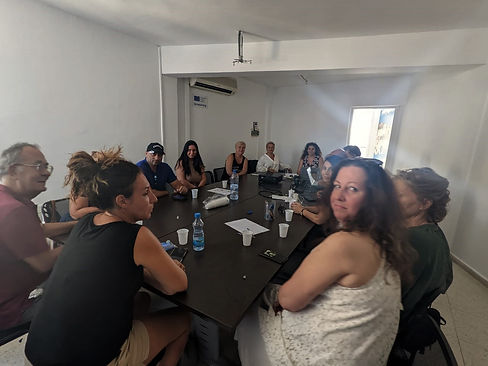

SAVE THE PLANET
Activity 3. Working visit in Cyprus
The activity took place in Paphos, Cyprus, and was hosted by the partner OPEI. The "Working Visit in Cyprus" followed the planned schedule and marked a crucial moment in the Green-Clean project. This activity was particularly important for the project’s implementation dynamics and in achieving the objectives set by the project. Through active participation in each action carried out during the activity (exchange of best practices, working visits, and knowledge transfer), both partners aimed to optimize the use of the acquired information to implement pro-nature programs in their activities.
The first part of the visit was dedicated to a detailed analysis of the project's progress, focusing on identifying issues and challenges encountered. Representatives from the partner organizations reviewed the activities undertaken, discussed challenges, and proposed solutions for overcoming them. They also evaluated the action plans, analyzing the project’s progress in relation to the established deadlines and budgets, with a focus on ensuring effective coordination between partners to guarantee that objectives were met on time.
The working sessions included discussions on the ingredients of eco-friendly cleaning products, their environmental impact, and their efficiency compared to conventional products. Participants had the opportunity to share their experiences and knowledge regarding the use of eco-friendly products, leading to a deeper understanding of their benefits and limitations.
Based on the collected information, recommendations were formulated regarding the use of eco-friendly cleaning products, which will be applied within the project and shared with the broader public.
The activity significantly contributed to strengthening collaboration between the partner organizations. The discussions and information exchanges facilitated better coordination and synchronization of implementation efforts.
Post-activity evaluations, including surveys and interviews, showed increased appreciation of the partnership collaboration and improved coordination. Subsequent communications between the organizations reflect a more efficient working framework and better mutual understanding.
Participants gained additional skills and knowledge related to ecological practices and environmental protection. The working sessions and experience exchanges contributed to the development of the necessary competencies for applying these practices.
The implementation of the recommendations and the use of the acquired knowledge in the activities of the participating organizations confirm the positive impact of this activity.






